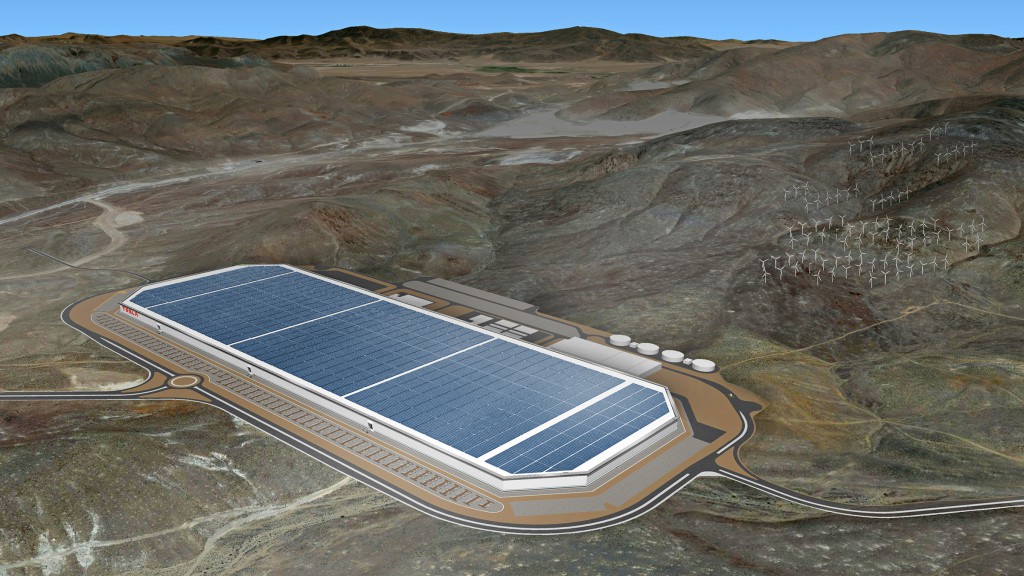Inside the Gigafactory, Where Tesla is Building its Future
TWENTY MILES EAST of Sparks, Nevada, a factory is rising from the red dirt of the high desert. It doesn’t look like much—a few completed structures amid exposed steel girders—but this building, dubbed the Gigafactory, is the key to Elon Musk’s sweeping plan to remake transportation.
The Gigafactory is where Tesla Motors will build the batteries that power its electric vehicles. The company has long imported batteries from Asia, but if it is to meet its CEO’s goal of producing 500,000 cars a year, it must build those batteries here. There’s simply no other way to meet its own demand, because the company expects to use more batteries in 2020 than were produced worldwide in 2013.
“The factory is the machine that builds the machine,” Musk says, sitting in the lobby of his new building.
When finished, the Gigafactory will cover 5.8 million square feet. Musk, never given to understatement, promises it will be beautiful. Plans call for a jewel-shaped building topped by a roof glittering with solar panels.

Finishing the factory is imperative. Tesla plans to start building the Model 3 sedan in 2018, and wants to produce half a million vehicles annually the same year. The only way that works is if Tesla can dramatically increase battery production while bringing down costs. Global demand for the limited supply of lithium-ion batteries—used in everything from power tools to cell phones to automobiles—will grow as automakers build more hybrids and EVs.
“You just look at the math. If you’re going to be 50-plus percent of a market, you’re in a really bad position unless you control that supply chain,” says Brook Porter, a senior partner at Kleiner Perkins. “He had to take control of it.”
The assembly lines will do everything from make the individual cells—cylinders a bit bigger than an AA battery—to assembling the immense packs that power a Model S or store energy in someone’s garage. Tesla doesn’t disclose its costs, but says doing it all in-house will drive down the cost of a battery by 30 percent.
